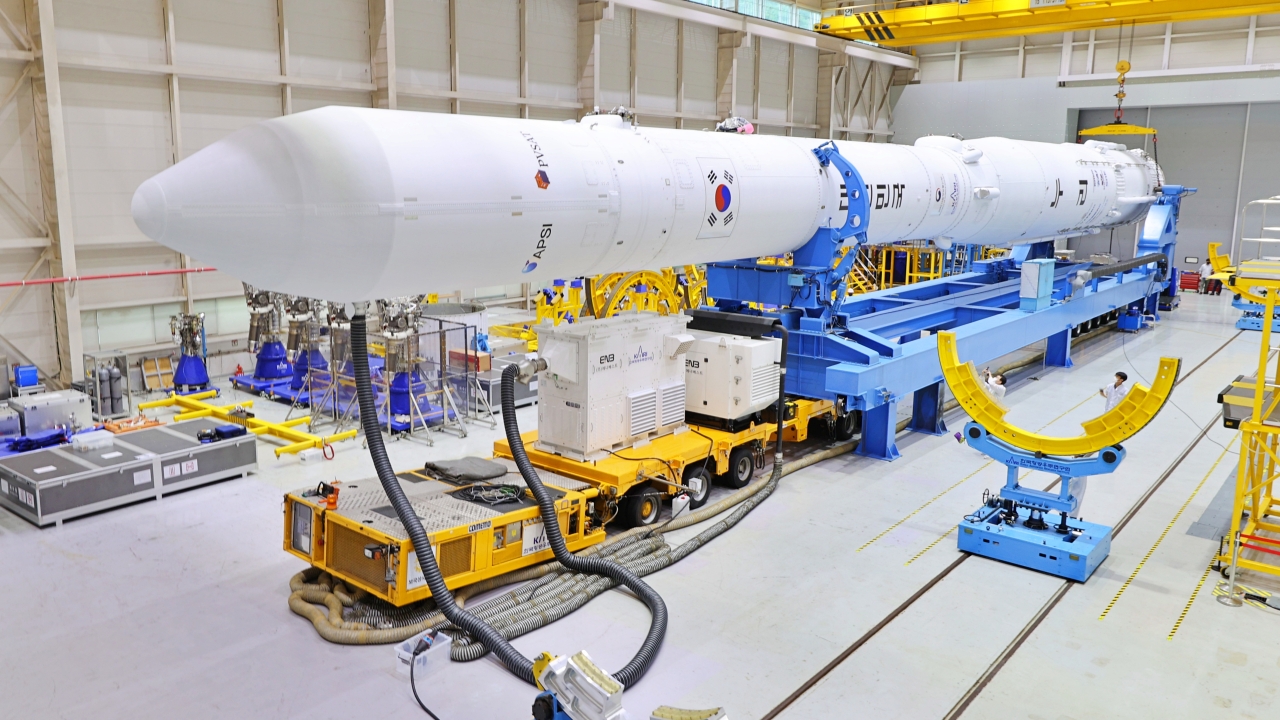
Nuri rocket is being loaded onto a transportation vehicle on Monday at Naro Space Center in Goheung, South Jeolla Province. (Joint Press Corp.)
The launch of homegrown rocket Nuri will be delayed by one day to Thursday due to windy weather at the launch site, the Ministry of Science and ICT said Tuesday, a day before the space rocket was to be launched.
It is the second space rocket to be launched after the first blastoff last October failed to put a dummy satellite into orbit.
Due to the bad weather, the government and state-run Korea Aerospace Research Institute have pushed the transportation of the rocket to Wednesday, and the actual launch to Thursday.
“Currently, the wind is strong at Naro Space Center (in Goheung, South Jeolla Province), and there is the possibility of wind growing much stronger. So we have decided to postpone the launch date to secure the safety of staff in the field,” the ministry said in a statement.
When the rocket is delivered to the launch pad, engineers have to make the rocket stand still using a launching device and inject electric power and engine fuel. But strong winds and rainy weather can compromise their safety, a KARI official said.
Authorities expect the rocket setup to go as planned on Wednesday, when weather at the launch site improves.
The Korea Meteorological Administration said low pressure in the southern region will head east on Tuesday, after which winds will subside and rain will stop in the overall southwestern region of the Korean Peninsula.
“Although there might be a few rain showers on Wednesday in the region, we forecast it would not critically hinder the rocket transportation to the launch pad,” a KMA official said.
Should the rocket launch be delayed again Thursday, the takeoff could still take place from Friday to June 23, officials said.
The KARI has completed assembly of the first and second stages of the three-stage rocket, which weighs 200 metric tons and measures 47.2 meters in height, and said it fixed technical glitches that led to the failure last time.
If the rocket reaches orbit, South Korea will become the seventh in the world to succeed in the development and launch of a satellite greater than 1 ton, following Russia, the US, Europe, China, Japan and India.






